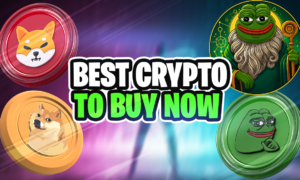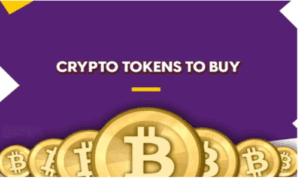In recent years, Non-Fungible Tokens (NFTs) have taken the world by storm, captivating the imagination of artists, collectors, and investors alike. These unique digital assets represent ownership of a specific item or piece of content on the blockchain, and their rise has reshaped the landscape of the cryptocurrency market. As NFTs continue to gain popularity, it’s becoming increasingly clear that they are not just a passing fad but rather a permanent fixture in the crypto landscape.
Understanding Non-Fungible Tokens (NFTs):
Non-Fungible Tokens are a special type of cryptographic token that represents ownership or proof of authenticity of a unique item or piece of content. Unlike cryptocurrencies such as Bitcoin or Ethereum, which are fungible and can be exchanged on a one-to-one basis, NFTs are indivisible and cannot be replicated. This makes them ideal for representing digital assets such as artwork, music, videos, and virtual real estate.
The Appeal of NFTs:
One of the key factors driving the rise of NFTs is their ability to provide provenance and authenticity for digital assets. By storing ownership information on the blockchain, NFTs ensure that the creator of a piece of content can prove its authenticity and ownership, providing a level of trust and security that is often lacking in the digital world. Additionally, NFTs enable creators to monetize their work directly, bypassing traditional intermediaries such as galleries or record labels and retaining more control over their intellectual property.
NFTs in the Art World:
The art world has been particularly enthusiastic about the potential of NFTs to revolutionize the way art is bought, sold, and collected. With NFTs, artists can create digital artworks and sell them directly to collectors, eliminating the need for galleries or auction houses. This has opened up new opportunities for emerging artists to gain recognition and generate income from their work. Furthermore, NFTs allow collectors to prove ownership of digital artworks and trade them on secondary markets, creating new avenues for investment and speculation in the art world.
NFTs in Entertainment and Media:
Beyond the art world, NFTs are also making waves in the entertainment and media industries. Musicians, filmmakers, and content creators are exploring ways to leverage NFTs to monetize their work and engage with their fans. For example, musicians can release limited edition albums or exclusive merchandise as NFTs, offering fans unique opportunities to support their favorite artists. Similarly, filmmakers can tokenize movie tickets or distribution rights, allowing fans to directly invest in and profit from the success of a film.
Challenges and Opportunities:
While the rise of NFTs presents exciting opportunities for creators, collectors, and investors, it also comes with its fair share of challenges. One of the primary concerns surrounding NFTs is the environmental impact of blockchain technology, particularly the energy consumption associated with proof-of-work consensus algorithms. Additionally, there are questions about the long-term value and sustainability of NFTs, as well as concerns about copyright infringement and intellectual property rights.
The Future of NFTs:
Despite these challenges, the future of Non-Fungible Tokens looks bright. As technology continues to evolve and mature, we can expect to see even greater innovation in the NFT space. This innovation will likely be driven by advancements in areas such as scalability, interoperability, and sustainability. Additionally, as more artists, creators, and companies embrace NFTs, we may see increased mainstream adoption and integration of these digital assets into everyday life.
Conclusion:
Non-Fungible Tokens have quickly established themselves as a permanent fixture in the crypto landscape, offering a new way to buy, sell, and collect digital assets. With their ability to provide provenance, authenticity, and ownership for digital content, NFTs are revolutionizing industries ranging from art and entertainment to gaming and virtual real estate. While there are challenges to overcome, the potential of NFTs to democratize access to digital ownership and empower creators is undeniable. As we look to the future, it’s clear that Non-Fungible Tokens will continue to shape the way we interact with digital content for years to come.



































